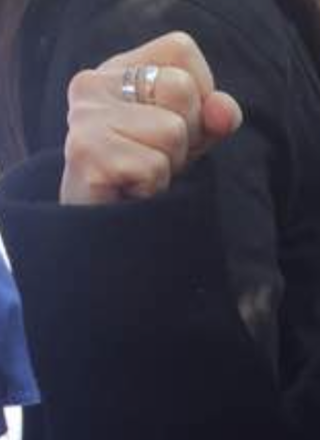Bullying
I Contacted Two High School Bullies to Get Closure
A tale of two bullies, with two very different endings.
Posted July 5, 2022 Reviewed by Tyler Woods
Key points
- Hurt people hurt other people, which could explain bullying.
- You might be able to understand your childhood bullies, and even become friends.
- Sometimes we can’t see the whole story in our lives. We get only pieces. We can’t know the details unless we ask.
We live in bullied times. We’re bullied into having the right look, the right job, the right politics.

Perhaps we’ve always lived in bullying times, especially if we don’t fit a mold.
For me, it began in high school, a time when I didn’t know or understand enough to do anything about being attacked. Now, I simply wanted to understand. I looked up two of my major bullies in hopes of contacting them to discover why they had bullied me, and how they might have changed.
The first bully, let’s call her Zelda, started out as my friend. Undeniably cool, she dressed in high bohemian, and didn’t seem to care what anyone thought of her, which thrilled me to my core and made me feel cool by association.
Until I became her target.
When a mutual friend of both of ours, all of us lazily sitting in the cafeteria, remarked how thin I was, Zelda sneered, “You don’t want to be skinny like that! If you look in the dictionary under skinny witch, you’ll find a photo of Caroline Leavitt!” To illustrate, she drew a horrifying caricature on the blackboard.
I was startled and stung, but everyone around us laughed, which added to my shame. Because I was also shy and insecure, I thought that maybe she hadn’t meant it, because why would someone who seemed so confident do something so mean? But soon, she struck again. When I had a traumatic breakup with a boy I loved desperately, she blithely told me, and a group of people around me, that she had slept with him herself while I was seeing him. I went home and sobbed, when what I should have done was to ask her, “Why would you hurt me like that? What could you possibly gain?” Her bullying finally ended our friendship when I got into Brandeis and she didn’t. She loudly told people, “Well, of course. She’s a freaking Jew.”
So, now I went to her Facebook page, to try to get clues to why she might have been so nasty, and how she might have hopefully changed. She, the one everyone thought would be famous for singing, art, or writing, was doing administrative work. She, who everyone thought would be living in Paris or Manhattan, was living in a rural community. She, who made sure everyone would mock how skinny and ugly I was, was decidedly overweight and under-cared for.
I felt a stab of sympathy. What had happened to her? Was she alright? So, I friended her, at least digitally, and said hello and she responded immediately back, “Well, hi, you. How’re you doing?”
And then I told her. About my life, the joyous ups and sometimes tragic downs (divorce, death, miscarriages, career) about how I was finally doing what I had always dreamed of. I was a novelist! I had made the NYT Bestseller list! How about you, I asked. What’s your life been like?
And then, before I sent my message, I asked her why she had bullied me in high school when I thought we were friends. I wanted to understand.
She never responded. In fact, she blocked me, which in its own way, was bullying.
So I next turned my attention to another high school bully. I’ll call her Addie. She had made my life miserable. She was beautiful and popular, with a coterie of boys dazzled by her, as well as an entourage of other popular, pretty girls. She mocked my desire to go to college because this was a working-class high school where less than 20 percent went on to college. Boys went into the armed forces, usually, and girls often wanted to and did get married right after graduation. Who was I to do anything different, they snickered? Once, sitting in front of this bully, I overheard her say to another girl, “I’d like to smash that stupid smile off her stupid face.” You should, her friends agreed.
She, too, was easy to find on Facebook. She was still beautiful, and it looked like she had a cool job that helped people. I asked her, as I had with my first bully, why she had gone after me in high school. I said that I just wanted closure, I just wanted to understand. I expected the same response, but instead, I got an eloquent response.
She told me, “I wasn’t what everyone thought I was.” She told me how she kept most of her life secret, terrified of being found out. How her parents had been alcoholics and they watched her every move. She told me how she got into drugs and lost her best friend over it, how she knew she was gay, but back then, no one was coming out, not even daring to think about it, and she would have been crucified if she had.
And then, to my surprise, she apologized. She told me that she had been so miserable, that seeing someone like me, continuing to rebel despite the cost to myself, when she herself couldn’t, made her angry, because she didn’t think that she had the agency to rebel herself. It was safer to feel empowered by being a bully, hurting someone because you hurt yourself. “I’m so sorry,” she said.
We began talking about our lives, how getting out of Waltham released us both, how we grew into the person we were meant to be, and I realized how funny and sensitive and warm she was. How interesting. “We could have been friends,” I told her. “We could have helped each other so much in high school.”
She was silent for a moment. “Well, we’re friends now,” she said. And we were. And we are.
Sometimes we can’t see the whole story in our lives. We get only pieces. We can’t know the details unless we ask. Maybe the question we need to ask of all bullies is simply this: What are you afraid of personally that you cannot allow others to have something different? How have you been hurt that you must retaliate by hurting others? And then, if you know, you can move on.




